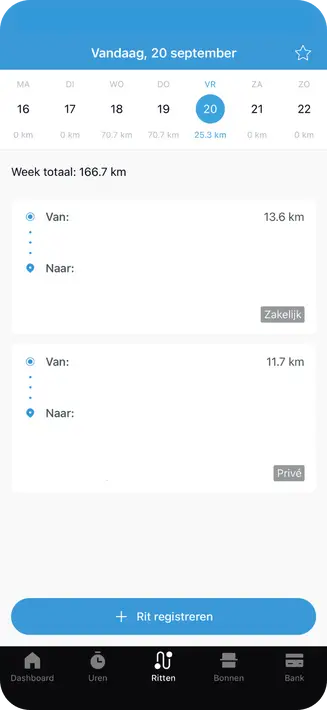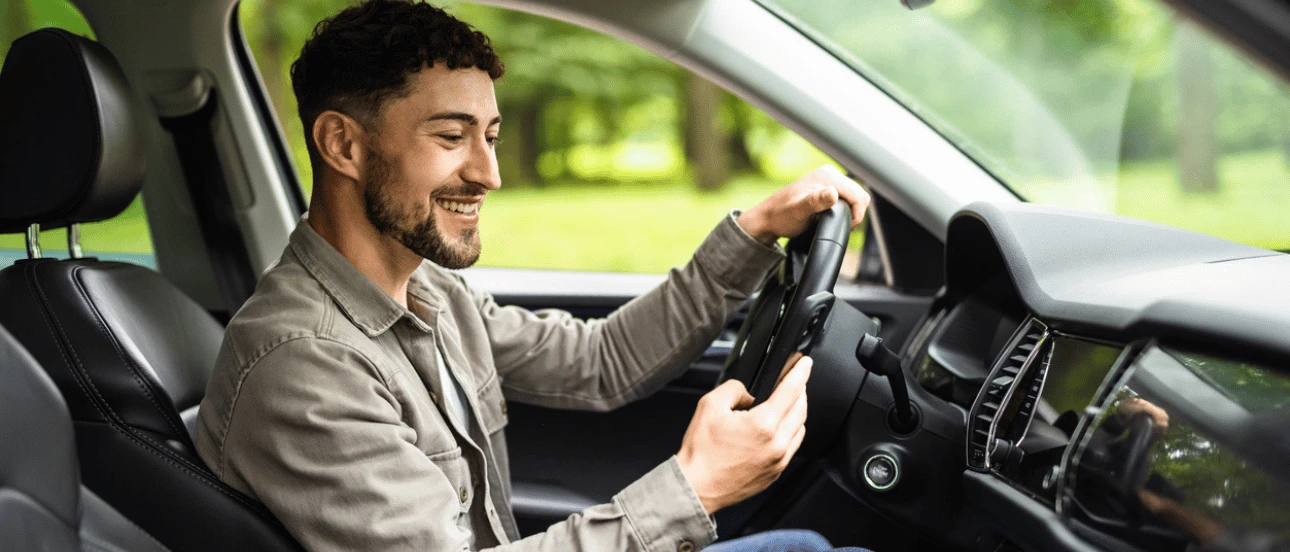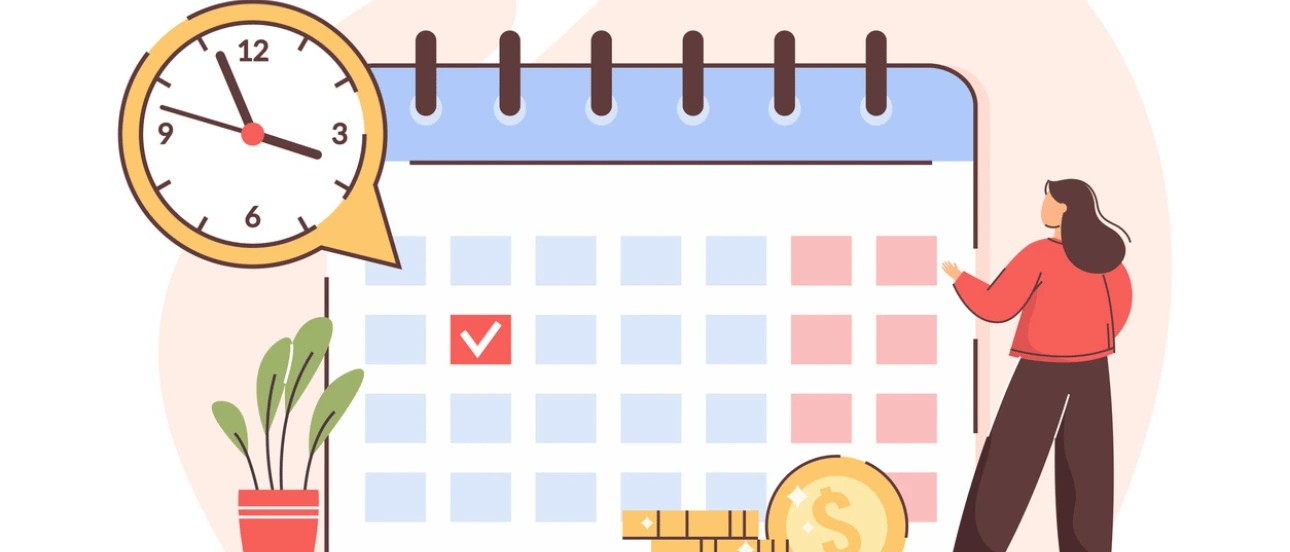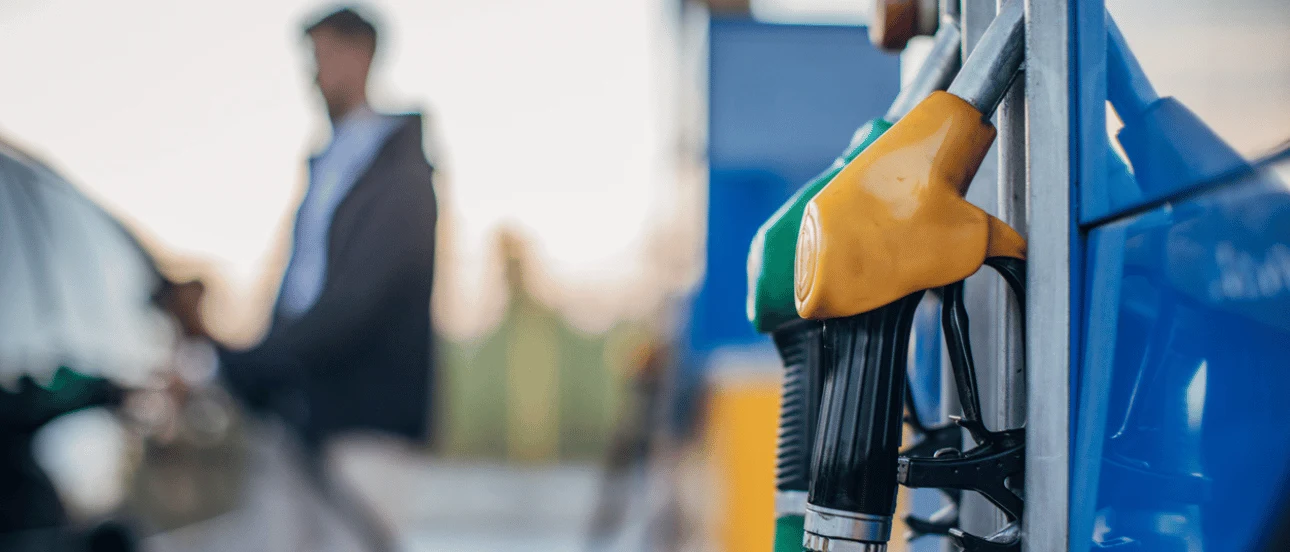When is a trip log required?
A trip registration form is needed when you need to prove how much you drive privately and for business purposes. If you have a company car, you can avoid an additional taxable benefit by driving less than 500 private kilometres. To do this, you need comprehensive records. Without full proof, the tax authorities will automatically add an additional taxable benefit. If you use a private car for your business, you need the records to substantiate business kilometres. This will allow you to correctly enter deductions or mileage allowances. A clear trip registration keeps your administration clear and verifiable.
Addition
Addition applies when you drive more than 500 kilometres privately with a business car. You avoid this by staying under the limit and having a comprehensive trip registration. If your registration is incomplete, additional taxable benefit will be applied. That is why you record every trip and clearly indicate which trip was business and which was private. This way, you avoid mistakes and keep a grip on the tax consequences of your car use.
What do you need to keep in a trip log?
A good trip registration contains all the data required by the tax authorities. For each trip, you record at least:
- Date
- Departure and arrival address
- Odometer start and end position
- Whether the trip was business or private
- Splitting of business and private mileage for mixed trips
- Deviations from the normal route, with explanations as to why
- A close mileage record that matches the counter reading
With this data, your trip record will remain complete and meet the requirements for audits.
App for trip registration
An app makes recording trips easier and prevents mistakes. You enter addresses or let the app automatically measure journeys via GPS. You indicate per trip whether it was business or private and can easily create reports. Accounting software often has trip registration built in. In MoneyMonk you can link journeys directly to your administration, keeping an overview and reducing manual work. This way of recording works quickly and fits well with your daily administration.
Trip registration example
You record a ride by entering the departure address and the arrival address. The app automatically calculates the distance. You choose whether the trip was business or private and add a short description if necessary. This automatically creates a clear overview that you can keep for your records.

Other providers
There are also separate apps that automatically record rides for you.
- Flitsmeister records trips with GPS and compiles them directly into an overview.
- TripLog Creates professional trip reports that you can export.
Both apps help you process rides quickly and clearly.
Box for trip registration
A box in your car automatically records rides without you having to enter anything. This comes in handy when you are on the road a lot or forget to record trips. The box registers every trip in full, which ensures comprehensive administration. This gives peace of mind and security during an audit. For entrepreneurs who drive intensively, this is often the most reliable way to keep track of journeys.
Form for trip registration
You can also track journeys manually with a form or document. As long as you record all the compulsory details, this complies with the rules. This works well if you make few trips and like to keep an overview yourself. With a paper form or digital document, you have control over your records and can easily keep everything with your accounts.
Track in Excel
In Excel, you can create a clear table for your trips. In it, you record the date, addresses, mileage and whether the trip was business or private. Filling this in after each trip keeps your records up to date and complete. Excel works well if you are looking for a simple and flexible way to keep track of journeys. Keep the file safe and make regular backups so that your data remain secure.
Mileage registration for kilometre reimbursement
If you use a private car for your business, you may deduct business mileage, this is the kilometre allowance. The trip registration shows how many business kilometres you have driven. You use this to substantiate your deduction. You only record business trips and keep them in your administration. Commuting kilometres can also be counted as business kilometres. A clear trip statement makes it easy to process the deduction and keeps your records tidy and verifiable.
Common mistakes
Many errors occur because journeys are not fully or clearly recorded.
- Failing to complete journeys resulting in inconclusive records.
- Mark private trips as business or vice versa.
- No noting of starting and finishing positions which means rides do not connect.
- Divergent routes not mentioned when detouring.
- Excel not saving or backing up.






